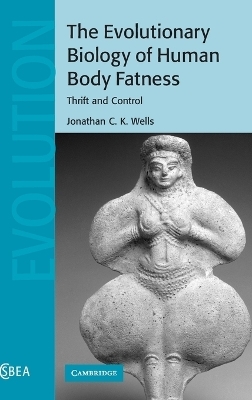
The Evolutionary Biology of Human Body Fatness
Thrift and Control
Seiten
2009
Cambridge University Press (Verlag)
978-0-521-88420-4 (ISBN)
Cambridge University Press (Verlag)
978-0-521-88420-4 (ISBN)
Timely analysis of medical and evolutionary data to address the role body fat has played in human biology, including in the current obesity epidemic. Obesity researchers from human biologists and anthropologists to health professionals will benefit from this comprehensive evolutionary approach to examining human body composition.
This comprehensive synthesis of current medical and evolutionary literature addresses key questions about the role body fat plays in human biology. It explores how body energy stores are regulated, how they develop over the life-course, what biological functions they serve, and how they may have evolved. There is now substantial evidence that human adiposity is not merely a buffer against the threat of starvation, but is also a resource for meeting the energy costs of growth, reproduction and immune function. As such it may be considered as important in our species evolution as other traits such as bipedalism, large brains, and long life spans and developmental periods. Indeed, adiposity is integrally linked with these other traits, and with our capacity to colonise and inhabit diverse ecosystems. It is because human metabolism is so sensitive to environmental cues that manipulative economic forces are now generating the current obesity epidemic.
This comprehensive synthesis of current medical and evolutionary literature addresses key questions about the role body fat plays in human biology. It explores how body energy stores are regulated, how they develop over the life-course, what biological functions they serve, and how they may have evolved. There is now substantial evidence that human adiposity is not merely a buffer against the threat of starvation, but is also a resource for meeting the energy costs of growth, reproduction and immune function. As such it may be considered as important in our species evolution as other traits such as bipedalism, large brains, and long life spans and developmental periods. Indeed, adiposity is integrally linked with these other traits, and with our capacity to colonise and inhabit diverse ecosystems. It is because human metabolism is so sensitive to environmental cues that manipulative economic forces are now generating the current obesity epidemic.
Jonathan C. K. Wells is a Reader in Pediatric Nutrition at the University College London (UCL) Institute of Child Health. He conducts research on pediatric energetics and body composition, using anthropological and evolutionary approaches to inform biological understanding.
1. Introduction; 2. Human fatness in broad context; 3. The proximate causes of fat deposition; 4. The ontogenetic development of adiposity; 5. The life-course induction of adiposity; 6. The fitness value of fat; 7. The evolutionary biology of adipose tissue; 8. Adiposity in hominid evolution; 9. Adiposity in human evolution; 10. The evolution of obesity.
| Erscheint lt. Verlag | 26.11.2009 |
|---|---|
| Reihe/Serie | Cambridge Studies in Biological and Evolutionary Anthropology |
| Verlagsort | Cambridge |
| Sprache | englisch |
| Maße | 158 x 235 mm |
| Gewicht | 750 g |
| Themenwelt | Naturwissenschaften ► Biologie ► Humanbiologie |
| Sozialwissenschaften ► Ethnologie | |
| Sozialwissenschaften ► Soziologie | |
| ISBN-10 | 0-521-88420-9 / 0521884209 |
| ISBN-13 | 978-0-521-88420-4 / 9780521884204 |
| Zustand | Neuware |
| Informationen gemäß Produktsicherheitsverordnung (GPSR) | |
| Haben Sie eine Frage zum Produkt? |
Mehr entdecken
aus dem Bereich
aus dem Bereich
produktiv sein ohne Stress – und mehr vom Leben haben
Buch | Softcover (2023)
dtv Verlagsgesellschaft
18,00 €
Wie Myrmecophile mit ihren Wirten interagieren
Buch | Softcover (2023)
Springer (Verlag)
69,99 €


